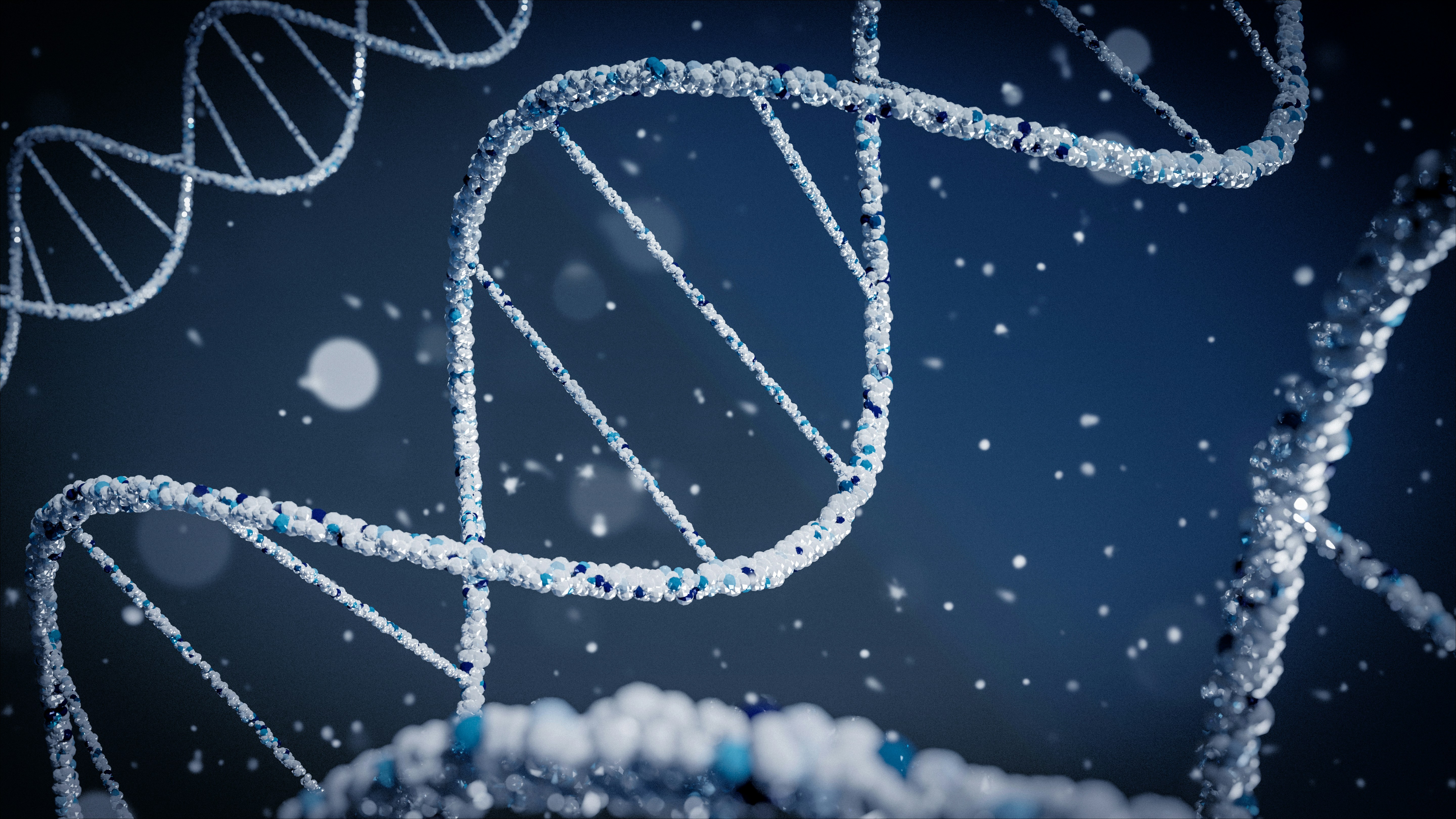The Science of Addiction
Published:
May 21, 2024
,
04:44 p.m.
ET
Updated:
Jul 9, 2025
,
04:11 p.m.
ET
Addiction is a pervasive issue that affects millions of individuals worldwide, with the World Health Organization estimating that over 35 million people suffer from substance use disorders globally. However, addiction is not limited to substances alone.
Behavioral addictions, such as gambling, video gaming, and sex addiction, also present significant challenges. Understanding the science of addiction is necessary for effective prevention and treatment.
What is Addiction?
Addiction is defined by a compulsive engagement in rewarding stimuli, despite negative consequences. It is a chronic disorder that often leads to significant impairment in daily functioning and relationships. While the World Health Organization (WHO) defines addiction as a chronic disease that affects a person’s brain, the Diagnostic and Statistical Manual of Mental Disorders, Fifth Edition (DSM-5) does not include addiction as a specific diagnosis. Currently, the only addiction covered in the DSM-5 is substance use disorder.
Common addictions include:
Substance Use: Alcohol, drugs (both prescription and illicit), nicotine
Behavioral Addictions: Gambling, pornography/sex, video games, internet use, shopping
Food Addiction: Compulsive overeating, addiction to specific types of food like sugar
The Root of Addiction
The roots of addiction often stem from a combination of genetic, environmental, and psychological factors. Understanding these roots is essential for effective prevention and treatment. Common roots of addiction include:
Chronic Stress: Persistent stress can lead to addiction as individuals seek relief through substances or behaviors.
History of Trauma: Experiencing trauma, especially in childhood, significantly increases the risk of developing addiction.
Mental Illness: Conditions such as depression, anxiety, and PTSD are closely linked to addiction, with individuals often using substances or behaviors to self-medicate.
Family History of Addiction: Genetics and family environment play a major role, with a higher likelihood of addiction in those with a family history of the disorder.
The combination and intensity of these factors vary among individuals, explaining why some people develop addictions while others do not. Recognizing these factors helps in identifying at-risk individuals and creating targeted interventions to prevent addiction.
The 3 Psychological Theories of Addiction
Addiction is influenced by a variety of psychological factors. Three primary psychological theories—classical conditioning, operant conditioning, and social learning theory—provide insights into how addictive behaviors are acquired, maintained, and potentially overcome.
Classical Conditioning
Classical conditioning involves learning through association. In the context of addiction, an individual might associate a specific environment, situation, or emotional state with the use of a substance or engagement in a behavior. For example, someone might crave alcohol when they enter a bar because they have repeatedly associated that environment with drinking. This conditioned response can trigger cravings and contribute to the cycle of addiction.
Operant Learning
Operant learning focuses on learning through rewards and punishments. Addictive behaviors are often reinforced by the immediate pleasure or relief they provide. For instance, taking a drug might produce a euphoric high, reinforcing the behavior and increasing the likelihood of repeated use. Conversely, withdrawal symptoms or negative consequences might not be immediate enough to discourage the behavior, allowing the addiction to persist.
Social Learning Theory
Social learning theory suggests that people develop addictions by observing and imitating others, especially those they consider role models. This theory highlights the influence of social and environmental factors in addiction. For example, individuals who grow up in households where substance use is common may learn to view these behaviors as acceptable or even desirable. Peer influence and media representations also play significant roles in shaping attitudes and behaviors related to addiction.
The Addiction Cycle
Understanding the stages of the addiction cycle can help in developing effective treatment strategies and interventions. The cycle typically involves three main phases: Binge and Intoxication, Withdrawal and Negative Affect, and Preoccupation and Anticipation. Each phase plays a role in maintaining the cycle of addiction and presents unique challenges for individuals trying to recover.
Binge and Intoxication Phase
The Binge and Intoxication phase is the initial stage of the addiction cycle, where the individual engages in the addictive behavior or substance use. During this phase, the brain's reward system is activated, releasing dopamine and creating a sense of pleasure and euphoria. This intense reward reinforces the behavior, making the individual more likely to repeat it. The person may consume larger amounts of the substance or engage in the behavior more frequently to achieve the desired effect, leading to a pattern of binging.
Characteristics of this phase include:
Escalation of Use: Increased consumption or engagement to achieve the same level of euphoria.
Immediate Gratification: The pursuit of immediate pleasure or relief.
Loss of Control: Difficulty in limiting the amount or frequency of use.
Withdrawal and Negative Affect Phase
The Withdrawal and Negative Affect phase occurs when the effects of the addictive substance or behavior wear off. During this phase, the individual experiences physical and psychological withdrawal symptoms, which can include anxiety, irritability, depression, and physical discomfort. The brain's reward system is less responsive, leading to a diminished ability to feel pleasure from normal activities.
Characteristics of this phase include:
Physical Symptoms: Nausea, headaches, tremors, and other discomforts associated with withdrawal.
Emotional Distress: Feelings of sadness, anxiety, and irritability.
Cravings: Intense urges to use the substance or engage in the behavior again to alleviate the negative symptoms.
Preoccupation and Anticipation
The Preoccupation and Anticipation phase is marked by an intense focus on obtaining and using the addictive substance or engaging in the behavior. During this phase, the individual's thoughts and activities become dominated by the addiction. This preoccupation can lead to neglecting responsibilities, relationships, and other important aspects of life.
Characteristics of this phase include:
Obsessive Thoughts: Constant thinking about the next opportunity to use or engage.
Planning and Seeking: Efforts to secure access to the substance or behavior.
Reduced Inhibition: A decreased ability to resist the temptation to engage in the addictive behavior.
How Addiction Affects the Body and Brain
Addiction has acute effects on both the body and the brain, leading to a range of physical and psychological consequences. These effects can vary depending on the substance or behavior involved, but they often share common pathways and outcomes.
Addiction and the Brain
Addiction primarily impacts the brain's reward system, which reinforces behaviors essential for survival, such as eating and socializing. When a person engages in addictive behaviors or uses substances, this system is hijacked, resulting in the release of excessive amounts of dopamine, a neurotransmitter associated with pleasure and reward. Over time, the brain adapts to the high dopamine levels by reducing the number of dopamine receptors or making them less responsive, a process known as downregulation. This leads to tolerance, where the individual needs to use more of the substance or engage in the behavior more frequently to achieve the same effect.
Areas of the brain affected by addiction include the prefrontal cortex, responsible for decision-making, impulse control, and self-regulation; the amygdala, involved in processing emotions and stress responses; and the basal ganglia, critical for muscle movement. Addiction impairs these functions, leading to poor decision making, dysregulated emotions, and a lack of impulse control.
Addiction can also lead to significant psychological and behavioral changes. Common issues include mood disorders such as depression and anxiety, as well as cognitive impairments that affect concentration, memory, and problem-solving. Behavioral changes often involve increased risk-taking, social withdrawal, and neglect of personal and professional responsibilities.
One common co-occurring disorder among those struggling with addiction is bipolar disorder. In fact, according to DSM-V criteria, individuals with bipolar I disorder have a 5.8 times increased lifetime risk of being diagnosed with a substance use disorder. Additionally, approximately 1 in 10 people diagnosed with bipolar disorder may face a moderate to severe lifetime risk of problem gambling.
Addiction and Your Body
Physically, addiction takes a significant toll on the body, with various substances and behaviors leading to specific health problems. Different types of addictions, whether behavioral or substance-related, can cause a wide range of physical issues:
Cardiovascular System: Addictions such as compulsive gambling and chronic stress related to gaming or sex addiction can increase heart rate and blood pressure, raising the risk of heart attacks, strokes, and other cardiovascular diseases.
Musculoskeletal System: Video gaming addiction can lead to repetitive strain injuries, poor posture, and muscle tension, while sex addiction might result in physical exhaustion and strain.
Digestive System: Unhealthy eating patterns associated with certain addictions can lead to gastrointestinal issues such as ulcers, irritable bowel syndrome (IBS), and malnutrition.
Endocrine System: Chronic stress from addictions like gambling or sex addiction can disrupt hormonal balance, leading to issues such as weight gain, diabetes, and thyroid problems.
Immune System: Addiction can weaken the immune system, making the body more susceptible to infections and illnesses. This can be due to neglect of overall health, poor nutrition, and chronic stress associated with addictive behaviors.
Overcome Your Addiction with the Right Treatment
Overcoming addiction is a challenging journey, but with the right treatment and support, recovery is entirely possible. Effective treatment for addiction typically involves a combination of therapies that address both the physical and psychological aspects of the disorder. Recognizing that addiction affects every individual differently, personalized treatment plans are essential for successful recovery.
Treatment options to consider include:
Behavioral Therapy
Cognitive Behavioral Therapy (CBT)
Dialectical Behavior Therapy (DBT)
Motivational Interviewing
Family counseling
Medication-Assisted Treatment (MAT)
Medications for managing withdrawal symptoms
Medications to reduce cravings
Medications to normalize brain function
Support groups and 12-step programs
Peer support groups
12-step programs like Gamblers Anonymous
If you or someone you know is battling addiction, don't wait to seek help. Professional treatment and support can provide the necessary tools and guidance for a successful recovery. Take the first step today and reach out to an addiction specialist to begin your journey towards a healthier, happier life.
Sources:
Drug Use and Health Consequences - United Nations Office on Drugs and Crime
Addiction - World Health Organization
Classical Conditioning: How It Works and Examples - WebMD
Operant Conditioning: What It Is and How It Works - WebMD
How Social Learning Theory Works - Verywell Mind
Neurobiology of addiction: a neurocircuitry analysis - Lancet Psychiatry
Bipolar disorder and addictions: The elephant in the room - The British Journal of Psychiatry
Here’s How Stress Can Trigger a Hormonal Imbalance - Healthline




